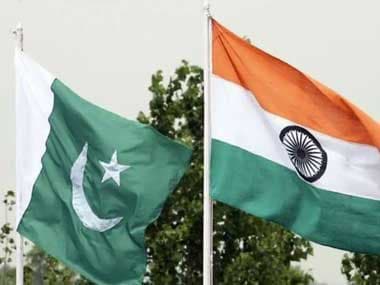Five days after the Pulwama terror attack in Jammu and Kashmir, Pakistan prime minister Imran Khan, in a televised address , had said how he hopes “better sense will prevail” in the Indian side even as he warned of retaliation in the face of military action by India. Days before that, Prime Minister Narendra Modi had reiterated how the “sacrifice of jawans would not go in vain” and that the neighbouring country should remember that this is a “new India” — a counter to Khan’s “Naya Pakistan”. India has so far raised customs duty to 200 percent for goods imported from Pakistan following the carnage, in which 40 CRPF men were killed, revoked the Most Favoured Nation status given to Pakistan, launched a diplomatic offensive to isolate the neighbouring country in the international community and ’threatened’ of not allowing excess water of three eastern rivers to flow into Pakistan. With general elections just around the corner and anti-Pakistan rhetoric sweeping the nation, Modi and security officials have been under immense pressure to exact jaw-breaking revenge. But amidst these veiled warnings of a war cry, is Pakistan already readying itself up for an offensive from India? [caption id=“attachment_5597401” align=“alignleft” width=“380”]  Representational image. Reuters[/caption] The Dawn has reported that Pakistan’s National Security Committee (NSC) held a meeting on Thursday with Khan to discuss “ geo-strategic” and “national security environment” in the light of Pulwama. The report also mentions that the NSC has given “formal authorisation to its armed forces to respond decisively and comprehensively to any aggression or misadventure by India”. Pakistan, it has been reported, is prepping its forces and war logistics on its frontiers in fear of retaliation. According to a report by The Times of India, Pakistan army based in Quetta Cantonment had written to its Jilani Hospital on 20 February for arrangements and a plan for medical support in view of the possibility of a war. The letter goes like this: “In case of emergency war on the eastern front, Quetta logistics area is expected to receive injured soldiers from civil and military hospitals of Sindh and Punjab. After initial medical treatment, these soldiers are planned to be shifted from military and civil public sector to the civil hospital in Balochistan till the period of availability of beds in CMHs (civil military hospitals)”. The letter further mentions that local administrations in Pakistan occupied Kashmir (PoK) have asked residents to take “safe routes” during the commute, avoid congregation and to build bunkers “immediately”. It also said that people should avoid unnecessary lighting at night. On Friday, Major General Asif Ghafoor, Director General - Inter Services Public Relations (DG ISPR) of the Pakistani military said the country has a “right to respond to war threats from India”. “We are a sovereign state. We are not preparing for war. It’s you (India) who is sending war threats,” he said. Some days ago, home minister Rajnath Singh was quoted by Aaj Tak as saying that if Pakistan was ready for war, India is “ not behind”. Similarly, Lieutenant General Kanwal Jeet Singh Dhillon, who is General Officer Commanding (GOC) of the Srinagar-based 15 Corps, had on Tuesday said if anyone picks up a gun against India he or she would be killed. India has 12 lakh active duty personnel in the army and a total force strength of 21 lakh. In comparison, the Pakistani army numbers 6.5 lakh active duty personnel and a total strength of 11.5 lakh. A report in The National Interest mentions that the smaller Pakistani army also has fewer offensive forces capable of attacking India head-on. The report states that the Pakistani army is only in a position to launch “small local offensives” to occupy favourable terrain. However, Pakistan “cannot hope” of terminating a ground war on its own terms. No wonder then that, for all its war cry and rapid preparations, Pakistan’s foreign minister Shah Mahmood Qureshi had also called on the United Nations to rein in India and calm the tense situation. In a letter to the secretary general of the United Nations, Antonio Guterres, on Monday, Qureshi had written that it was “with a sense of urgency that I draw your attention to the deteriorating security situation in our region resulting from the threat of use of force against Pakistan by India”.
Pakistan, it has been reported, is prepping its forces, war logistics on its frontiers for fears of retaliation
Advertisement
End of Article


)

)
)
)
)
)
)
)
)



